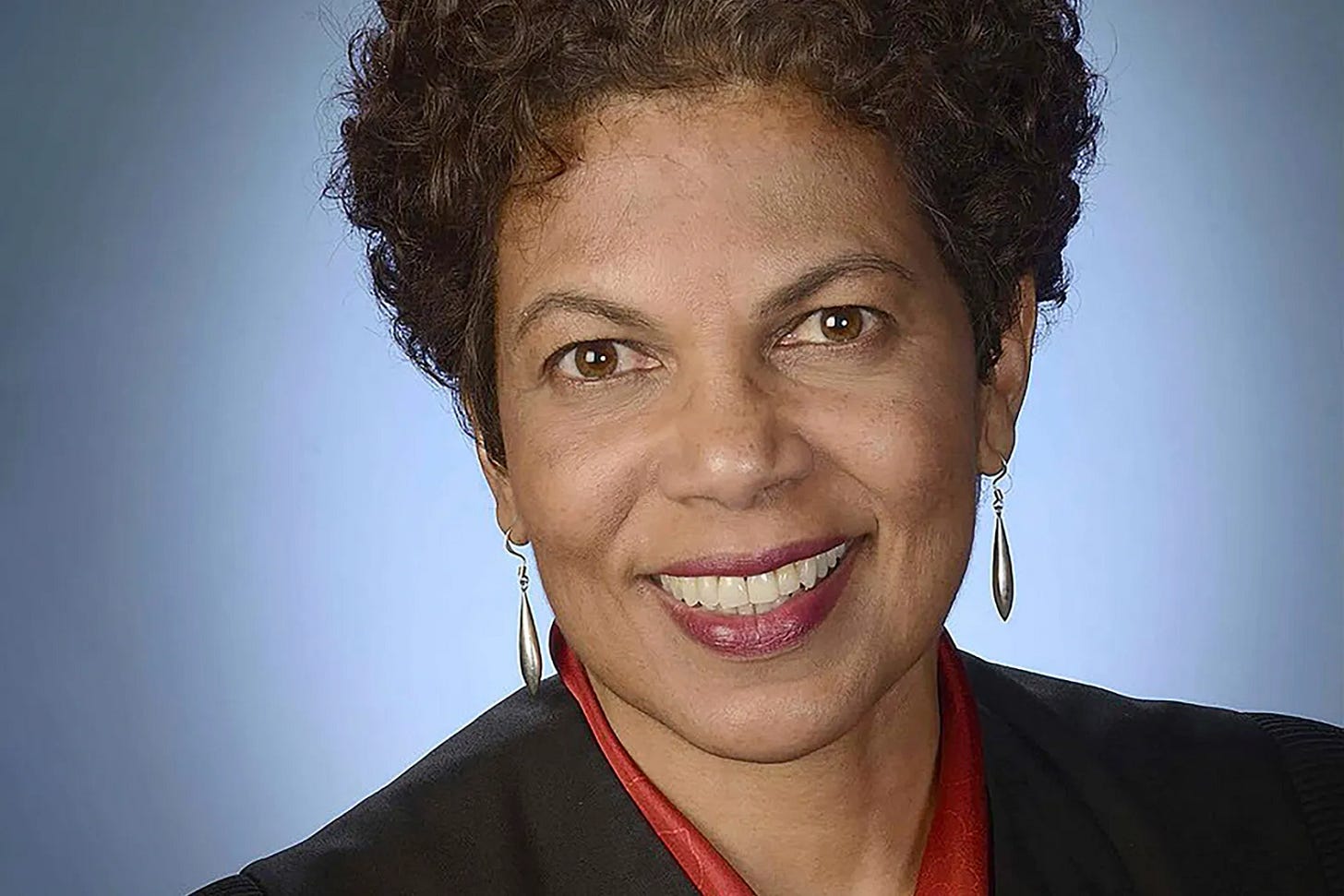The Weekend Wrap: September 8, 2024
Trump’s NY sentencing delayed as DC case resumes
Welcome to the Weekend Wrap! Here are the week’s white collar highlights:
Trump Prosecutions
D.C. Federal Case - January 6 Allegations
Judge Chutkan held a status conference on Thursday to hear the parties’ competing views on how the case should proceed. Jack Smith argued the judge should consolidate all immunity questions and decide those issues first, to ensure there is only one interlocutory appeal and that it can happen as soon as possible. Prosecutors proposed that they file a brief detailing why they believe the charges in the superseding indictment are not barred by the Supreme Court’s immunity decision, and the defense could then respond. That brief would include information beyond what is in the indictment, including grand jury testimony, FBI interviews, and other evidence the government intends to introduce at trial.
U.S. District Judge Tanya Chutkan
The defense wanted the judge to first consider other motions regarding discovery, as well as a motion to dismiss based on the claim that Jack Smith’s appointment as special counsel was unconstitutional. On immunity, the defense argued she should first decide the issues surrounding the evidence about Trump’s communications with and pressure on Mike Pence. If those are immune, the defense claimed, the entire indictment must be tossed because those allegations are integral to the entire case. Only if the judge finds that the Pence allegations are not immune should she then go on to consider other immunity questions. Under the defense proposed schedule, immunity issues would not even be fully briefed until December. The defense also objected to Smith filing his brief first, arguing it should be up to the defense to challenge the indictment as it sees fit and the prosecution can then respond.
The defense tried to inject the election timetable into the equation, claiming it would be prejudicial to Trump to have prosecutors file their brief laying out all of their trial evidence during this “sensitive time.” Judge Chutkan shut that down, saying that the timing of the election was not the court’s concern and would not enter into her scheduling decisions. This is in line with her prior statements that Trump will be treated like any other criminal defendant when it comes to court matters and scheduling and that her decisions would not be influenced by the political calendar.
As for the motion to dismiss based on the claim that Smith’s appointment was unconstitutional, Chutkan noted that the defense could have filed that motion long ago and that the deadline for new motions to dismiss had passed. Trump’s attorneys argued that Judge Cannon’s dismissal in Florida and Justice Thomas’s concurrence on that issue in the immunity decision gave the defense new grounds for the motion. Chutkan said she would allow the defense to make the argument, but she sounded rightly skeptical. She noted there is a D.C. Circuit opinion upholding the appointment of special counsels and that Trump’s attorneys would need to convince her it does not apply. (In other words: “You can file your motion to preserve the issue for appeal, but it’s not going anywhere in my courtroom.”)
Shortly after the hearing, Judge Chutkan issued a scheduling order. She largely adopted the government’s proposed approach. She said Smith will go first on the question of immunity and will file his brief by September 26. The defense response is due on October 17, and the government’s reply on October 29. After the briefs are filed, the judge will decide whether she needs hearings or additional proceedings to decide the immunity questions.
Chutkan also ordered that the defense will have until Sept. 19 to file its reply briefs in a couple of motions that were outstanding at the time the case was stayed. The defense can file a supplement to its pending motion to dismiss on statutory grounds by October 3 (this is the argument to dismiss the obstruction of justice counts based on the Supreme Court’s Fischer decision). The defense can also move for permission to file a motion to dismiss based on the argument that the special counsel’s appointment is unconstitutional by October 24. Trump’s attorneys must persuade the judge that the D.C. Circuit precedent doesn’t preclude the motion, or they won’t even be allowed to file it. Finally, she ordered that prosecutors complete all of their discovery obligations and other required disclosures by September 10 (indicating she believes there is not much to be done there).
This is a reasonable scheduling order and is good for the prosecution. Rather than waiting months to even begin grappling with the immunity issues, Judge Chutkan is going to get right to it, while requiring that briefing on other pending motions be wrapped up in the next couple of months as well.
Although there won’t be a trial before the upcoming election, this could definitely lead to some very interesting briefs being filed before November, describing in greater detail the government’s evidence of Trump’s efforts to overturn the results of the last election. But I wouldn’t get too excited yet about some new bombshell revelations — I expect a lot of the information will have to be filed under seal, as it will contain confidential grand jury material.
Overall this is a good sign that Judge Chutkan, a smart, no-nonsense judge, is going to do what she can to keep this case moving forward at a good pace. And we have to note the usual caveat: all this becomes irrelevant if Trump wins the election.
New York State Case - Hush Money/False Business Records
Sentencing delayed: On Friday Judge Merchan issued a letter stating that sentencing on Trump’s 34 felony convictions, currently set for September 18, will be delayed until November 26, well after the presidential election. He also delayed the date he will decide Trump’s pending motion to dismiss based on presidential immunity until November 12, also after the election.



